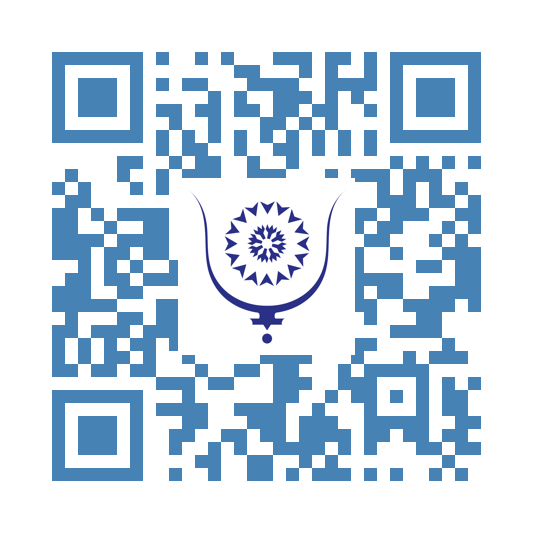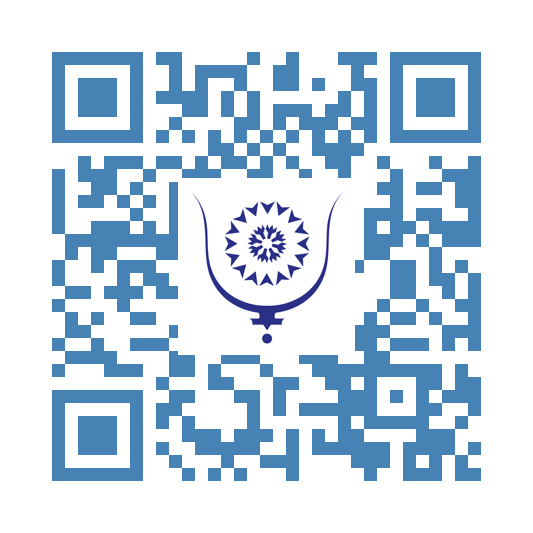Morocco triumphs at the UN but remains humble and open... Algeria responds with denial...
133
The United Nations Security Council vote, it must still be reminded, marked a decisive turning point for Moroccan diplomacy and the future of the region.
“There is a before and after October 31,” said His Majesty the King. Through broad and unequivocal support for the Kingdom's position, the international community once again confirms the credibility of the Moroccan approach via the autonomy plan proposed since 2007. In fact, the international community thus salutes Morocco’s stability as a credible regional actor and highlights its immense efforts in developing the southern territories and their spectacular progress benefiting its citizens and the regional populations. This success is no accident: it results from a relevant, consistent, patient, firm, and humble royal vision, favoring dialogue and cooperation rather than escalation and provocation. His Majesty King Mohammed VI has never ceased calling for reason and cooperation for 26 years.
Immediately after the vote results were announced, His Majesty once again called for direct and sincere dialogue with Algeria, addressing President Tebboune explicitly. The message is framed within a logic of peace and historical responsibility. The sovereign, far from being triumphalist, extends his hand once more to a neighbor who insists on hiding behind outdated slogans and archaic postures. This offered hand starkly contrasts with the rejection and even hatred that dominates the other side of the border. While Rabat multiplies gestures of openness, Algiers stubbornly remains closed to all dialogue, preferring a haughty stance, sterile confrontation, and counterproductive refusal of reason. A chronic resentment that surprisingly becomes doctrine.
The reaction of Algerian media after the Security Council vote shows a mindset marked by disinformation, propaganda, hatred, and a mean-spirited aggression. Some statements on state television even questioned the integrity of the member states that supported Morocco’s position; others spoke, just hours after the vote, of a possible return to arms, as if war could remedy a stinging diplomatic failure. More worrying still, insults toward Morocco, notably the label of a country "in the pocket of the Zionists," reveal a level of extreme nervousness nearing loss of control. The word "makhzen," knowingly debased, is thrown to the wolves by debaters competing in buffoonery and comic exaggeration. Do they realize that this hateful language only strengthens Algiers’ isolation? By accusing the whole world of conspiracy, the Algerian military may not realize that diplomacy must be a realm of credibility and trust, not blind resentment. Meanwhile, the world watches and finally understands. Algeria neither seeks nor wants to be a partner in peace and construction.
Today, the international community witnesses: Morocco proposes, Algeria blocks. Morocco builds, Algeria destroys. Morocco advocates cooperation, Algeria confrontation. From Washington to Paris, Madrid to Dakar, Seoul to Brasilia, Riyadh to Freetown, capitals have grasped the difference between a forward-looking policy and a stance frozen in outdated ideological nostalgia, laughable. The Sahara is no longer a matter of regional propaganda but a global stability issue: it touches the Sahel’s security, the fight against terrorism, and the balance of the entire North African space. Algeria’s obstinacy is costly, and the world is tired of it.
By clinging to a matter in which it declares itself "not concerned," Algeria traps itself in an unbearable contradiction and a burdensome attitude. How long can this unsustainable situation persist without the international community intervening to end this obvious support to a group with dubious activities?
The day fatigue increases, particularly in the United States, which could come soon, the temptation to designate the Polisario as a terrorist organization would become possible and credible. This is quite plausible considering the separatists’ military activities, their regional ties with recognized terrorist groups, and their presence in an area rife with trafficking in which they actively participate. Nothing would prevent it since the idea is already circulating in the US Congress, introduced by Joe Wilson, who gathers much support. Algiers would then be in an untenable position, responsible for harboring, funding, and arming a terrorist group. Such a drift would expose the Algerian regime to its own contradictions and risks. Algerian insults, from officials and press alike, sometimes direct, sometimes barely veiled toward France, Spain, even the USA and now the Security Council and all those supporting the Kingdom will eventually take effect. Pushing the Polisario to declare that it will not participate in negotiations is just suicidal for Algiers.
We must never forget that the future belongs to those who build, and that builder is Morocco, which has chosen the path of building a better future for itself and the region. The Kingdom has opted for partnership and peace. It consolidates its African leadership, strengthens its alliances, and modernizes its internal institutions. Its diplomacy is based on trust, coherence, and mutual respect—values that increasingly distinguish Rabat on the international stage. While Algerian rulers rehearse their grudges, the Kingdom forges ahead, confident in its successes, faithful to its principles, open to dialogue but firm in defending its vital interests.
The royal message is clear. Morocco fears neither confrontation, nor disinformation, nor fake news, and will always prefer peace based on responsibility rather than the turmoil of misplaced pride.
The joyful and highly significant demonstrations of Moroccan citizens immediately after the royal speech showed the world that the Sahara issue, for Moroccans, is not just a stance or a power game. Aware of the global stakes of the matter, protesters in Laayoune, Boujdour, Dakhla as well as in Tangier or Agadir did not fail to salute the powers that favored the vote of resolution 27-97 on October 31, 2025. Far from mocking Algerians, they celebrated for themselves and for the free world. Here, the issue is not emotional but genetic. Algeria and Algerians must integrate this and are called to reflect. The wind has truly changed and forever on October 31.
Share:
Morocco triumphs at the UN but remains humble and open... Algeria responds with denial...
copy:
https://bluwr.com/p/445322329
Leïla Slimani: when words spoken to please betray the reality of an entire country civilisation...
387
The recent statements by the writer Leïla Slimani, Moroccan to us, Franco-Moroccan on television programs, have not gone unnoticed at all. Leïla Slimani made a particularly pointed remark regarding Moroccan women and mothers that sparked a strong controversy going beyond simple differences of opinion. Leïla was among the guests on the show "Tout le monde en parle". A show that survived its creator Thiery Ardisson, in Quebec but not in France. The statements in question, perceived as condescending and disconnected from the social and cultural realities of Morocco, deeply offended many Moroccan women. Especially those who, like her, write in French and consume cultural programs in French. They did not let her remarks pass, far from it. Many responded to her. Some more harshly than others. She received backlash like never before in her life. The reactions were measured, reasoned, and blunt even if politely delivered. Some were real lessons addressed to someone who truly deserved a strong reminder. All reminded her that many mothers, constrained by difficult conditions, have raised their children with courage, dignity, and a keen sense of values, and today refuse that their commitment be reduced to simplistic clichés or one-sided judgments whose only purpose is to create buzz on television sets.
On social networks and in public spaces, the reaction was unanimous and passionate. Moroccan women, at least those who spoke, firmly rejected the stereotypical vision inflicted on them, denouncing a sometimes moralistic and westernized posture that ignores the complexity and richness of their experience. Their role can neither be reduced nor caricatured, as it is fundamental in the construction of Moroccan society, itself evolving but deeply rooted in its traditions, resilience, and unique identity.
The sentence where Leïla Slimani speaks of revenge as a value that mothers would teach their children, girls in particular, does not pass and will not pass. She cited her own grandmother as an example, absent to contradict her... This expression is truly inappropriate as well as misleading. The opposite is true: one of the fundamental values of Moroccan society is precisely forgiveness.
Forgiveness is taught and lived daily in social relations here. Life revolves around forgiveness. The word forgiveness in darija is uttered dozens of times a day by everyone here.
*Lalla Leila, do we really need to remind you that Moroccan culture is not nourished by resentment, and even less by revenge, but by a demand: a demand for respect and nuance.*
Today, Moroccan society is progressing, but it firmly rejects external judgments imposed without a deep understanding of the local context, whether religious or cultural. As a public figure representing Morocco on the international stage, if you please, you should show greater prudence and empathy in your remarks. Speaking a truth is one thing, inventing it is another, especially since the context was not fiction but a widely viewed program.
This controversy highlights a persistent symbolic fracture between a certain elite living abroad and the real Morocco, the one that lives, struggles, and moves forward at its own pace, certainly, but makes true progress. Criticism is legitimate, questioning is salutary, but it must always be done with rigor, responsibility, and above all respect. Public speech must never humiliate nor infantilize Moroccan women, and even less in their essential and vital role: raising new generations.
Morocco is not frozen in stereotypes. Moroccan women, whether lawyers, entrepreneurs, teachers, artists, workers, artisans, or stay-at-home mothers, lead every day, in the shadows of essential battles, based on a quiet strength worthy of admiration. Their modernity is an inner, patient, and authentic process that has nothing to envy from imported discourse. Their future lies in their hands and will not be shaped by words uttered here or there just to impress an audience eager for primitive orientalism.
Beyond that, this affair broadly reveals the difficulty some Moroccans of the diaspora face to reconcile distance and sensitivity towards their country of origin. This is the bridge needed for dialogue, based on sincere listening and respectful sharing of experiences. Through this misstep, Leïla Slimani showed how a disconnected word can deeply hurt, especially when it comes from one of our own.
And if the phrase pronounced by Leïla Slimani only reflected her personal feeling and perhaps a repressed desire for revenge linked to her family past. Her father, the late Othmane Slimani, a prominent economist who was once minister and bank boss, went through a real downfall, accused of malfeasance. He succumbed to lung cancer before the end of the judicial process, having appealed a first ruling condemning him in first instance. It must nevertheless be recognized that it was under his presidency of the Fédération Royale Marocaine de Football that the Moroccan National Football Team won the only African title it holds to this day. That was in 1976. Moroccans have never forgotten this epic and still thank Si Slimani, the selector Mehdi Belmejdoub, coach Mardarescu, and the players of the time led by Ahmed Faras.
Madam Slimani, who deserves respect for who she is, must simply understand that Morocco does not ask for lessons, but for genuine understanding and respectful dialogue to support its transformation and the great progress made. Spreading nonsense and ideas that don’t match its history, the values of its citizens, and even less those of its women, does not honor a writer who aspires to make history. Many before her have tried the same path in their quest to be more royalist than the king; none succeeded. Morocco can be left, but it never leaves us, and that is why it must be respected.
**Morocco is certainly about good food, good drink, but not about revenge.**
This is my response to Leïla Slimani, on behalf of my mother, my grandmother, and all the mothers and grandmothers, if they would allow me...
Share:
Leïla Slimani: when words spoken to please betray the reality of an entire country civilisation...
copy:
https://bluwr.com/p/443982894




